Herbie Flowers: “People have often said that I should've got a writer’s credit for Walk On The Wild Side”
Despite the song hinging on the bass hook, Herbie Flowers received just £17 for his now legendary work with Lou Reed. But he's not bitter...
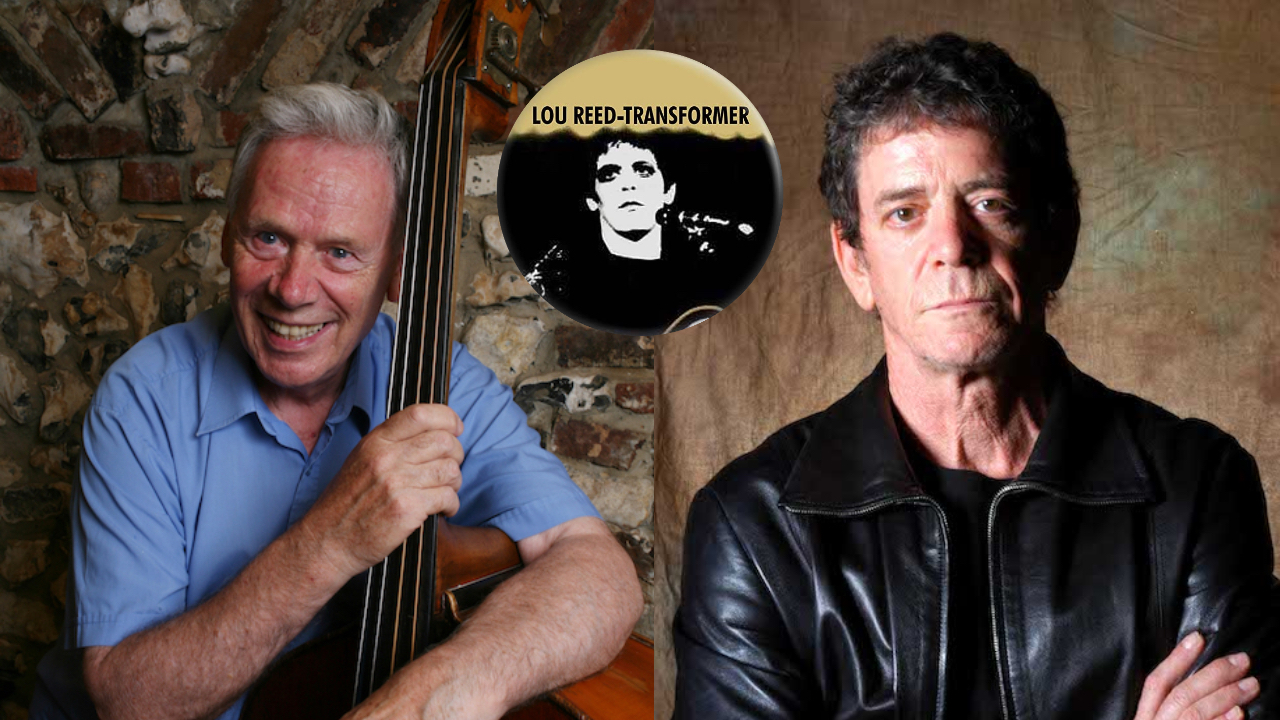
Having recorded over 20,000 sessions for the likes of David Bowie, Dusty Springfield, T-Rex, Paul McCartney, George Harrison and Elton John, to name but a few, British session bassist Brian ‘Herbie’ Flowers (“I get booked because of my stupid name!”) is probably best known for his nifty slide line on Lou Reed’s 1972 hit Walk on the Wild Side, which has not one, but two bass parts. Yet despite the song hinging on the bass, which Flowers performed on upright and overdubbed with his Fender Jazz, he only received the grand sum of £17.
Not that the modest musician will himself blow his own trumpet. “I’ve no problem with that at all! You do the job and get your arse away,” he once told Mojo writer Phil Sutcliffe about his contributions to some of the best-known songs in rock. “Space Oddity (David Bowie, 1969) was £9 for a three-hour session. By Rock On (David Essex, 1973) it had gone up to £12 for three hours!”
Nevertheless, his bassline for Lou Reed is one of the most distinctive things about the track. “Well, that’s great, but you could say the same for the trumpet on Penny Lane or the sax on Baker Street. People have often suggested that I should have got writer’s credits, but I just helped put an arrangement together."
“Lou had the chords written out on a piece of paper and my job was to come up with the bassline," he says. “What the producer wants is for you to come up with something that is a bit catchy and with Lou Reed it was easy to say, ‘Can I get the double bass out of the car? Because this song is a bit jazzy and the electric bass doesn’t work’, although it did work when I put the bass guitar on a 10th above it. You could only do that once on a record because it’s such a distinctive sound.”
Lou Reed had the chords written out on a piece of paper and my job was to come up with the bass line
Flowers recalls buying his Fender Jazz from legendary New York music store, Manny’s in either 1959 or 1960. “I was 21 at the time,” he says. “I was a double-bass player, so I had no idea what a bass guitar was back then. It cost me $70.” As you can see from the photos, the body has a different paint colour underneath, which is not uncommon for a Fender from that time period. In the early '60s, custom colours were often sprayed over existing finishes to speed up production.
“It’s still got its original ‘electric blue’ finish,” he says. “It was the same colour as my Claud Butler bicycle! The pickups are original, as are the frets and the pots. I’ve kept everything, including the metal pickup and bridge covers.”
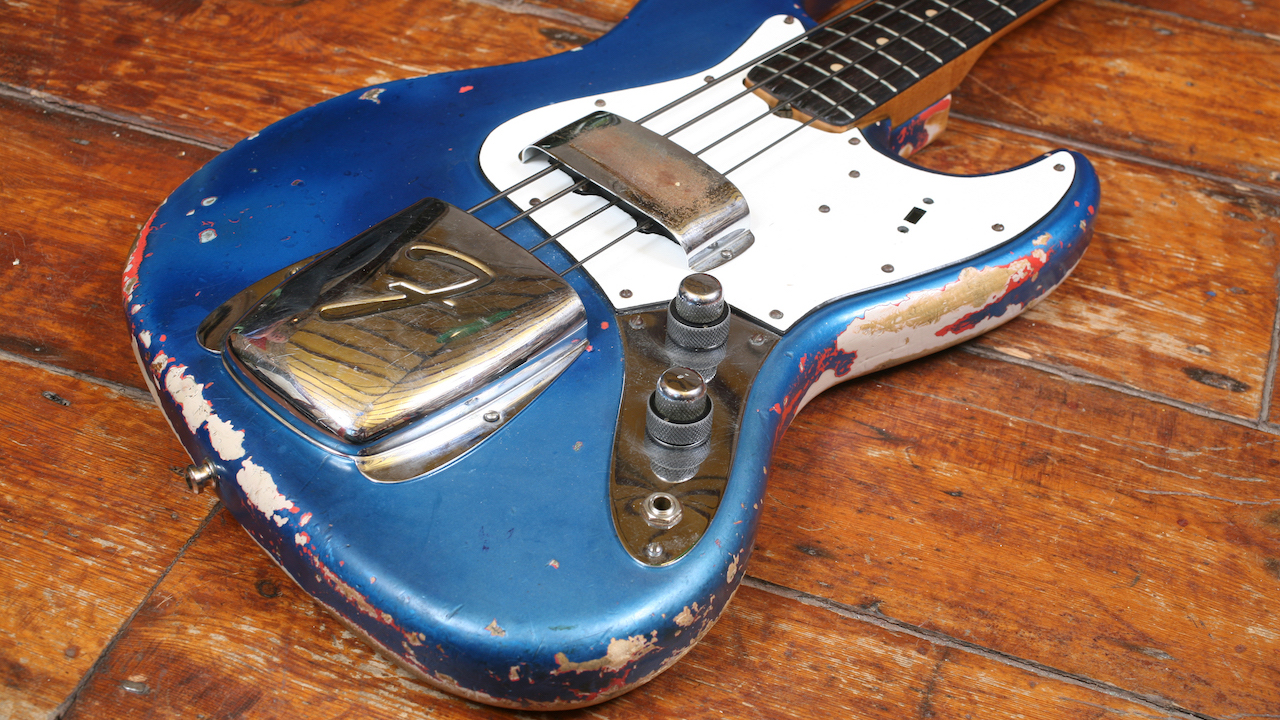
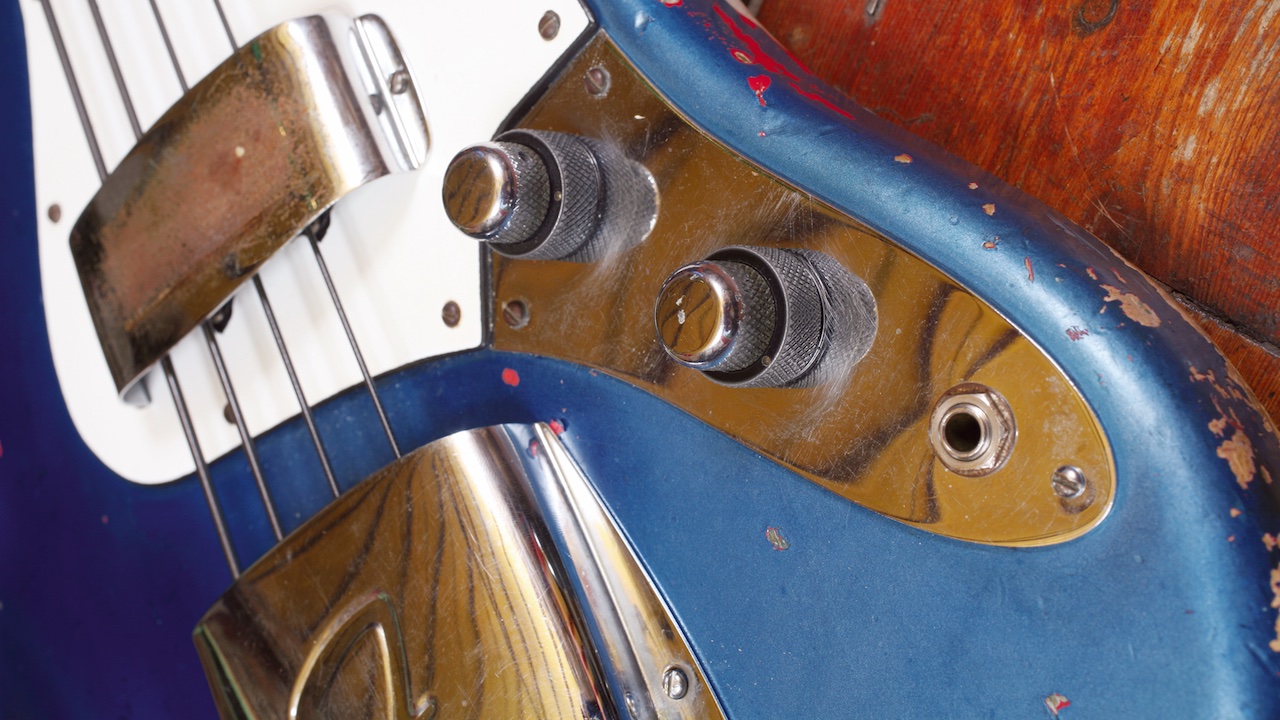
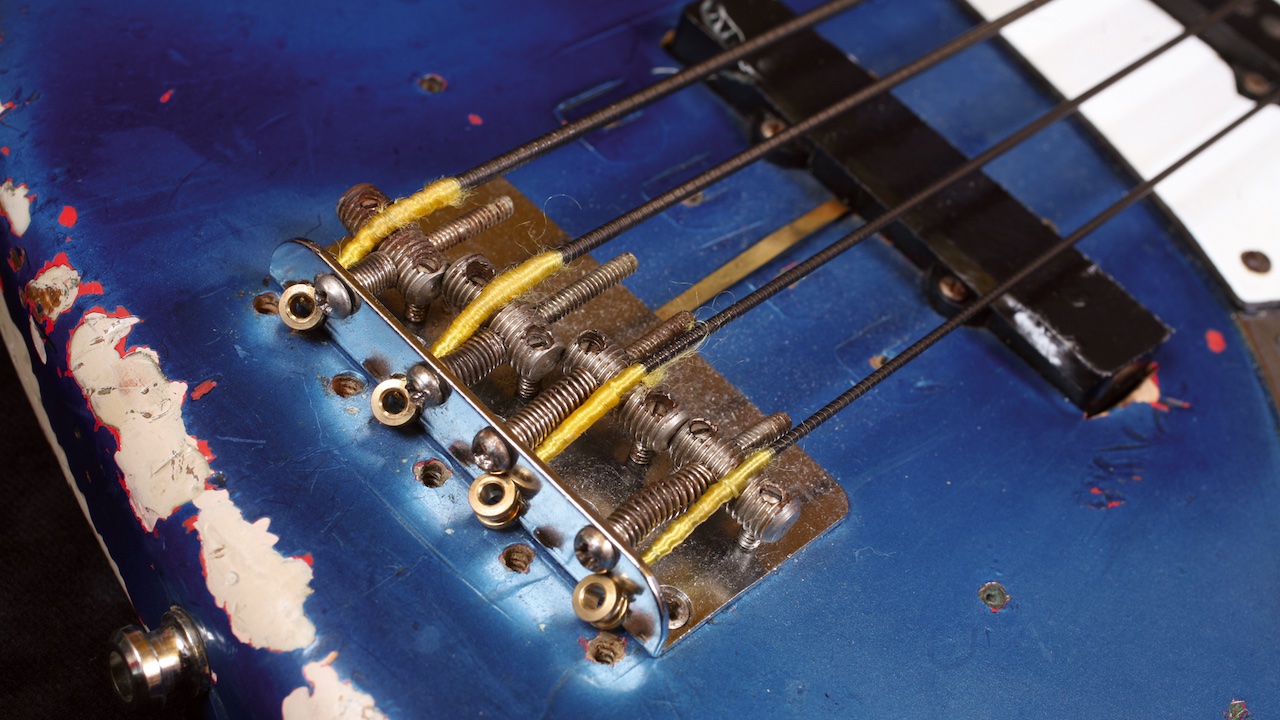
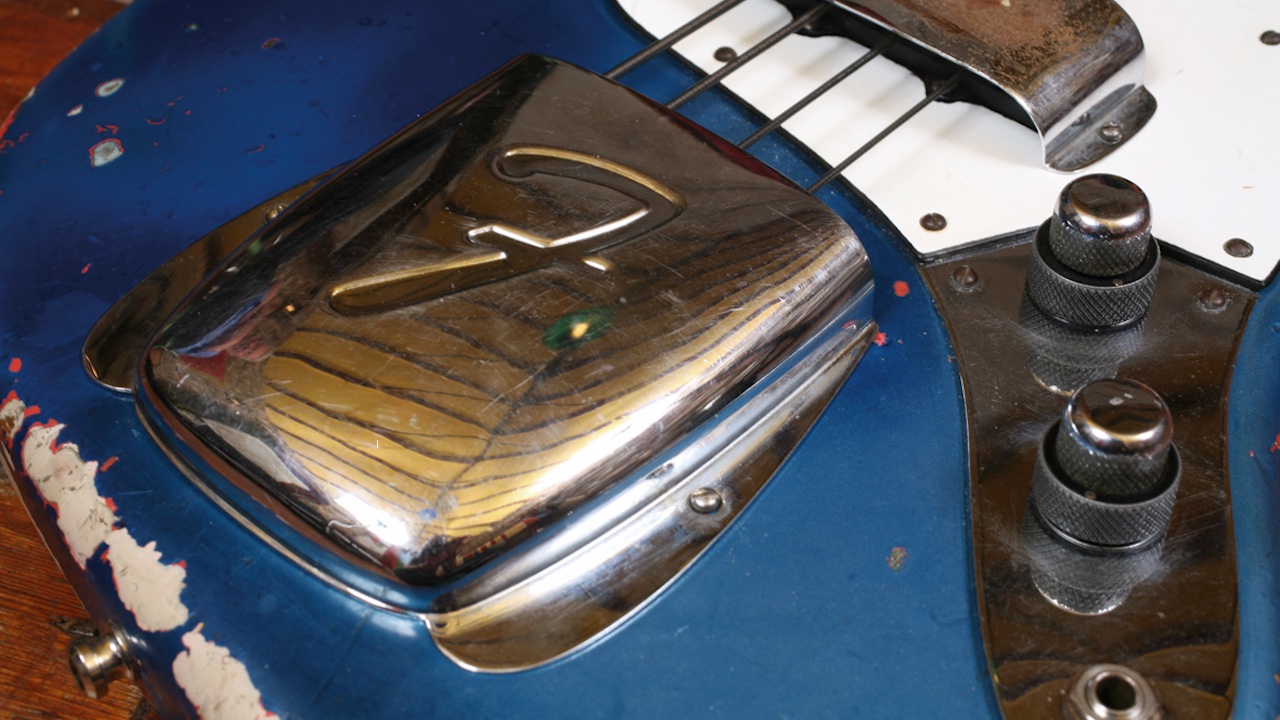
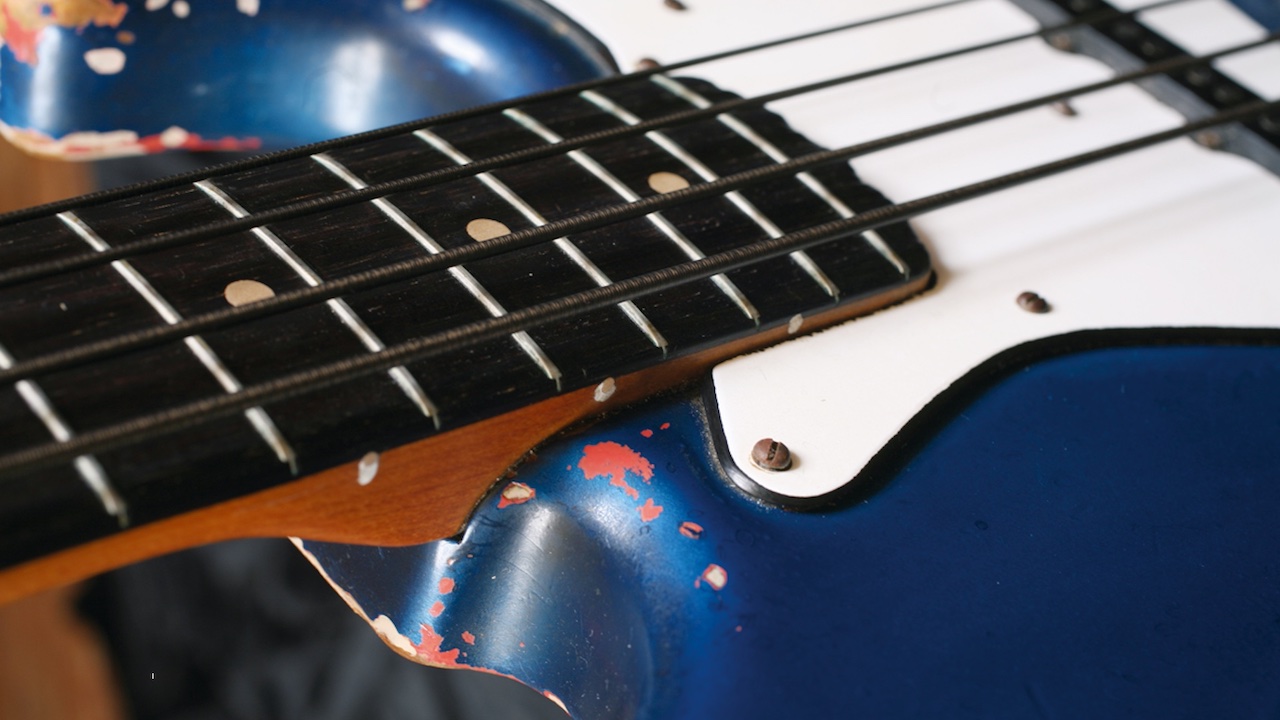
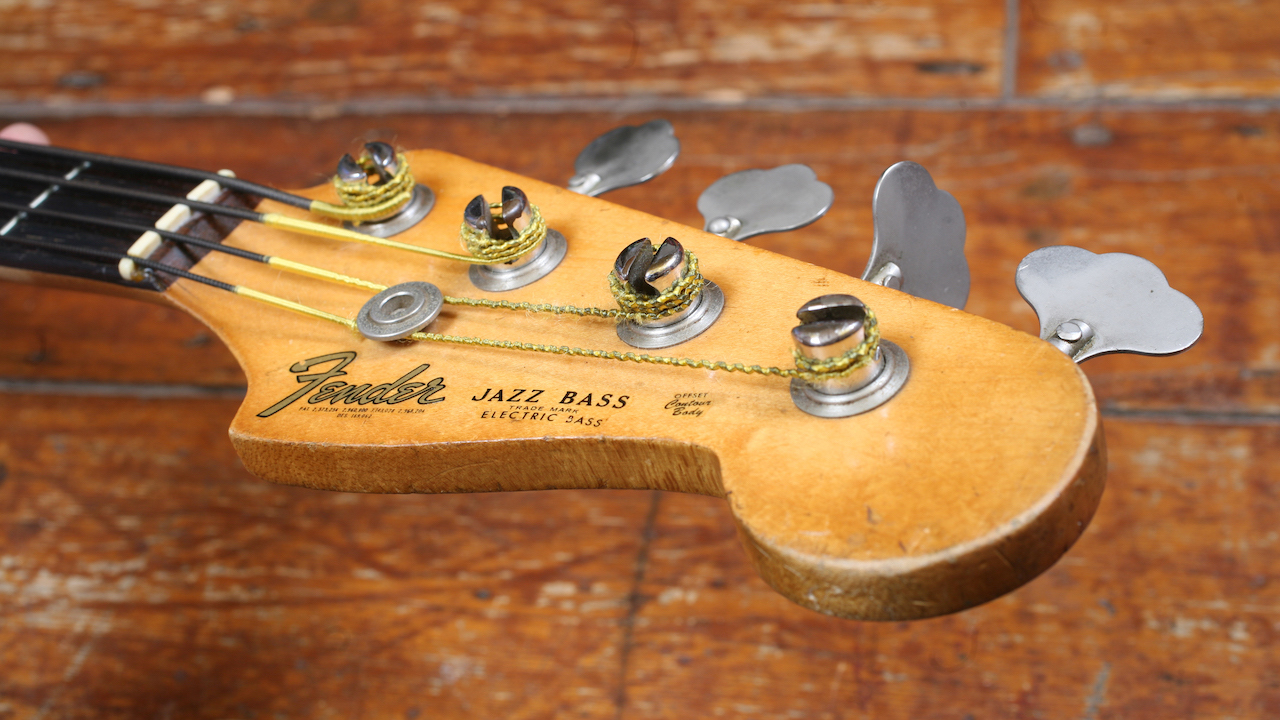
Having spent a lifetime holding down the bottom end for the music world’s elite, Flowers is a studio musician who knows his stuff. “Do you want to know what I tell young musicians who want to make it in this business?” he asked us. “Don’t play somebody else’s lick, learn to read music, and listen to a bit of Miles Davis.
"And don’t play what we call groove-busters, which are bits of music that aren’t relevant. Chris Spedding, who is one of my dear friends, started out on bass in the 60s, and he told me that he was on a session, and the drummer stopped him and told him that he’d played a groove-buster. There’s no answer to that.”
Walk On The Wild Side appears on Lou Reed’s Transformer.
Get The Pick Newsletter
All the latest guitar news, interviews, lessons, reviews, deals and more, direct to your inbox!

Nick Wells was the Editor of Bass Guitar magazine from 2009 to 2011, before making strides into the world of Artist Relations with Sheldon Dingwall and Dingwall Guitars. He's also the producer of bass-centric documentaries, Walking the Changes and Beneath the Bassline, as well as Production Manager and Artist Liaison for ScottsBassLessons. In his free time, you'll find him jumping around his bedroom to Kool & The Gang while hammering the life out of his P-Bass.
“I asked him to get me four bass strings because I only had a $29 guitar from Sears”: Bootsy Collins is one of the all-time bass greats, but he started out on guitar. Here’s the sole reason why he switched
“I got that bass for $50 off this coke dealer. I don’t know what Jaco did to it, but he totally messed up the insides!” How Cro-Mags’ Harley Flanagan went from buying a Jaco Pastorius bass on the street to fronting one of hardcore’s most influential bands











